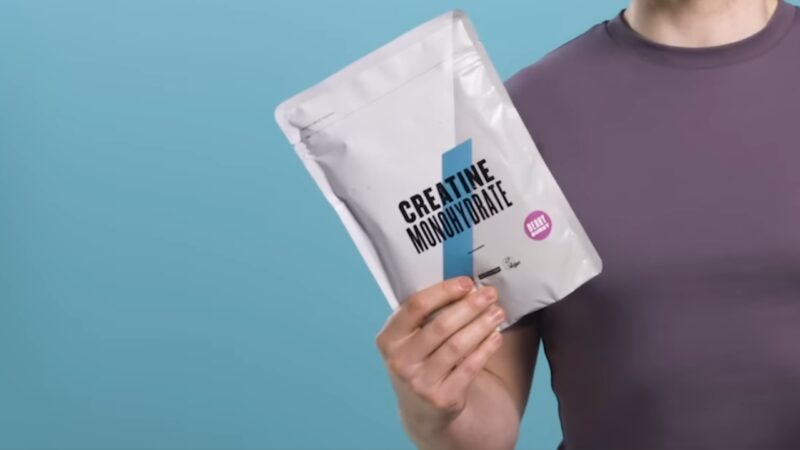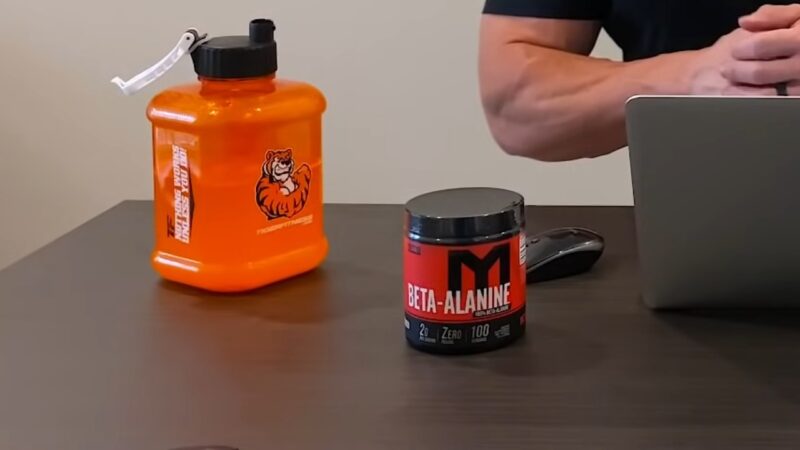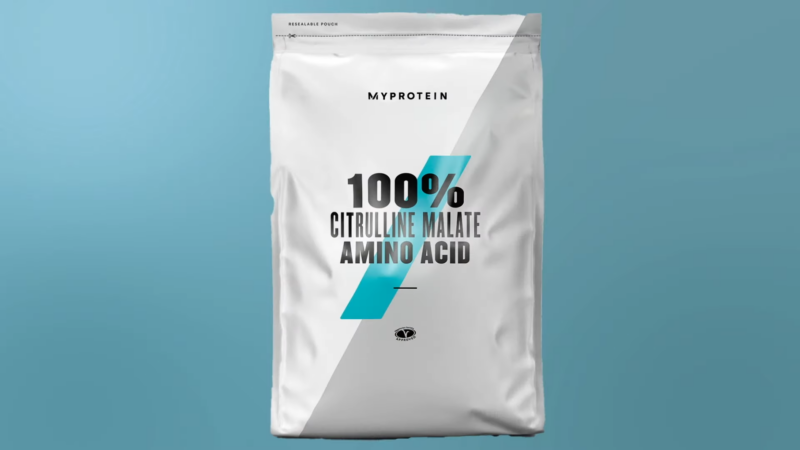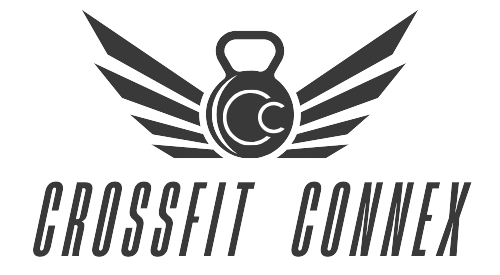In this article, I will be far more focused on what will help improve your performance than what is not going to be beneficial. If I tried to go through and list what supplements I do not think are worth taking, it would be an endless list.
Some of these supplements, like Glutamine1 or Beta-hydroxy-beta-methylbutyrate, despite their popularity or widespread use, lack strong scientific backing to show they directly benefit athletic performance, and muscle synthesis, or provide a notable advantage over a well-balanced diet rich in whole foods2.
They are not harmful (like for example most energy or stimulant drinks3), but their efficacy for the specific goals of CrossFit athletes, especially when compared to a balanced diet and well-established supplements is doubted.
Let’s see the best Supplements for CrossFit Training, relevant to almost all athletes.
1. Creatine Monohydrate

No surprise here! King creatine also tops my list of the best supplements for bodybuilders, endurance athletes, and everybody in general! It is the most tried and true, affordable, and effective of all the creatine variants4.
Why? Simple: Creatine has been shown over and over again to help athletes increase muscle mass and strength levels, boost high-intensity work capacity, and improve body composition. It’s affordable, too!
It is also naturally produced in the human body from the amino acids glycine, methionine, and arginine, and is used in the phosphocreatine energy system which helps power the first ~10 seconds of activity.
So, why than people ask if is it safe? Well, there is always a risk of some complications.
Creatine is generally considered safe when taken at recommended doses, but it is not approved by the National Collegiate Athletic Association (NCAA) for use by student-athletes.
According to the NCAA’s banned substance list, creatine is not banned, but it is classified as a “non-certified supplement.”
While creatine is not banned by the NCAA, it could still potentially be detected in drug testing and could result in a positive test.
Student-athletes who test positive for banned substances may be subject to penalties, including suspension from competition.
2. Caffeine
Caffeine is a natural chemical with stimulant effects. It is found in coffee, tea, cola, cocoa, guarana, yerba mate, and over 60 other products. It stimulates your central nervous system as well as your muscles, heart, and other parts of your body that help control blood pressure.5
But be careful. Up to 400 milligrams (mg) of caffeine a day appears to be safe for most healthy adults.
That’s roughly the amount of caffeine in four cups of brewed coffee.
Because it helps you feel more alert, caffeine could be thought of as a “mind-altering” drug. But in moderate amounts, the FDA has labeled it a food product that’s generally recognized as safe (GRAS).6
| Benefits | Side Effects |
|---|---|
| Enhances performance in short-term, high-intensity exercise | Can cause insomnia |
| Improves focus and concentration | May lead to stomach irritation |
| Suppresses feelings of tiredness | Increases heart rate |
| Can enhance fat-burning | Can cause restlessness and shakiness |
| Possibly reduces the risk of certain diseases (e.g., Parkinson’s) | May lead to increased blood pressure |
| May provide protective effects for the liver | Can lead to dependency and withdrawal symptoms |
3. Beta-Alanine

Crossfitters are famous for pushing the pace and intensity in a way that creates plenty of lactate and hydrogen ion buildup in muscles. This is what leads to that awful, burning, “I can’t possibly do one more rep” feeling.
This is where beta-alanine comes in. It helps increase your body’s stores of carnosine, which can get rid of these extra hydrogen ions and can boost both exercise performance and the amount of training volume you can tolerate.
However, a review of studies on the beta-alanine supplement shows that it doesn’t increase muscle strength or aerobic endurance. Actually, it only has a small performance-enhancing effect when efforts reach a duration of ~0.5–10 minutes.7
This does not necessarily mean that athletes will see better results. In one study, sprinters who took beta-alanine did not improve their times in a 400-meter race.
There are potential side effects associated with beta-alanine, especially if a person takes it in large doses, although they are not severe. These may include skin rashes and paresthesia, a tingling sensation on the skin. Learn about the side effects of drugs and supplements here.
4. BCAAs

BCAAs are a common sight in pretty much every type of weight room, and CrossFit boxes are no exception.
Why? Well, they taste good and help you stay hydrated. But sipping on BCAAs before or during workouts can also help speed up recovery and reduce exercise-induced muscle soreness after a tough session.8
But have on your mind – if your protein intake is already high enough BCAAs probably aren’t going to provide a benefit to you.
So, is it OK to take BCAA every day?
Research has shown supplemental BCAA intake to be safe for healthy adults in doses of 4-20 g per day, with prolonged intake of one week or more showing greater benefits than acute (short-term) intake.
Aim for 2-3g leucine between meals, before, during, or after workouts to maximize muscle protein synthesis.
My personal opinion is that it is the best way to take BCAAs naturally from food and don’t think too much about how much it is helpful.
If you consume enough protein in your diet, BCAA supplements are unlikely to provide additional benefits.
| Food | Serving size | BCAA content |
|---|---|---|
| Ground beef, 90% lean | 3.5 ounces (oz) (100 g) | 4.5 g |
| Chicken breast | 3.5 oz (100 g) | 5.5 g |
| Whey protein powder | 1 scoop (25 g) | 5.9 g |
| Pea protein powder | 1 scoop (25 g) | 4.5 g |
| Canned tuna | 3.5 oz (100 g) | 4.6 g |
| Salmon | 3.5 oz (100 g) | 4 g |
| Ground turkey, 93% lean | 3.5 oz (100 g) | 3.2 g |
| Eggs | 2 eggs | 2.6 g |
| Parmesan cheese | 1 oz (28 g) | 2.2 g |
| Milk, 1% | 8 oz (237 milliliters) | 1.7 g |
| Greek yogurt | 1 cup (227 g) | 4.1 g |
5. L-citrulline

L-citrulline is a non-essential amino acid produced in the liver and intestine. This means that the body can make its own citrulline; it can also be found in some foods (such as watermelon).
The body converts L-citrulline to L-arginine, another type of amino acid that improves blood flow and is shown to help people with heart disease, clogged arteries, and erectile dysfunction (ED).
| Benefit | Description |
|---|---|
| Increased exercise capacity | Improves the ability to utilize oxygen better, boosting workout and endurance capabilities. |
| Increased blood flow | Enhances nitric oxide levels, leading to improved blood flow and potentially reducing symptoms of erectile dysfunction (ED). |
| Decreased blood pressure | Contributes to lower high blood pressure by causing blood vessels to dilate, thanks to increased nitric oxide levels. |
| Improved cardiac function and erectile dysfunction | Directly linked to enhanced function of both the right and left ventricles and endothelial function, often improving ED. |
| Enhanced cognition & brain performance | Maximizes oxygen and blood flow, improving cognitive functions and brain performance. |
| Boosted immunity | Linked to a stronger immune system, helping to fight infection and foreign invaders naturally. |
6. Protein Powder

Protein powders are powdered forms of protein that come from plants (soybeans, peas, rice, potatoes, or hemp), eggs, or milk (casein or whey protein).
This is a must for muscle maintenance, growth, and recovery, as well as simply ensuring you get enough protein throughout the day.
Whether you add it to your morning oats or whip up a satisfying shake, protein powder is a fast and easy way to up your protein intake.
It may include other ingredients such as added sugars, artificial flavoring, thickeners, vitamins, and minerals.
The amount of protein per scoop can vary from 10 to 30 grams. Supplements used for building muscle contain relatively more protein, and supplements used for weight loss contain relatively less.
If you have a busy life where you go straight from the box to work, or if you track your macros and have trouble meeting your daily protein goals, then a protein shake can be your best friend.
Which Kind of Powder Is Right for You?

Fast-digesting protein like whey is ideal to take post-workout because it improves your muscles’ ability to recover and adapt after strenuous exercise.
Protein types like whey/casein, milk, or egg proteins on the other hand, enable your body to maintain high rates of building muscle and low rates of muscle breakdown.
Plant-based protein blends have also vastly improved in recent years.
Some studies indicate they can even be as effective over time as whey protein.
The Hidden Dangers of Protein Powders
| Risk Factor | Description |
|---|---|
| Safety and Labeling | The FDA does not closely regulate the safety and labeling of protein powders, making it hard to be sure of a product’s contents. |
| Long-term Effects Unknown | There’s limited data on the side effects of high protein intake from supplements, making their long-term safety uncertain. |
| Digestive Distress | Individuals with dairy allergies or lactose intolerance may experience gastrointestinal discomfort with milk-based protein powders. |
| High in Added Sugars and Calories | Some protein powders contain large amounts of added sugars and calories, potentially leading to weight gain and unhealthy blood sugar spikes. |
| Contamination with Toxins | Studies have found protein powders contaminated with heavy metals, BPA, pesticides, or other harmful substances linked to health issues. |
For best health outcomes, it’s recommended to meet protein needs through whole foods rather than relying on supplements.
Of course, there are plenty of other supplements like Multivitamins, Essential Fatty Acids, Beta-hydroxy-beta-methylbutyrate, and citrulline-malate, Glutamine, I didn’t mention this time, because I wanted to sort the best of it by my opinion and experience in a workout.
It doesn’t matter whether you are crossfitter or a bodybuilder, doing an everyday workout takes time, energy, and dedication.
There’s nothing worse than not seeing the progress you’ve strived so hard to achieve or suffering from delayed onset muscle soreness that hits you hard and lingers, preventing you from going all out the next gym session.
So, you can buy and use supplements from this or other lists, but you must be sure it is helpful to you. For some, protein powder is fantastic, while others are allergic to this.
Listen to your body.
Reference
1. Helms, E.R., A.A. Aragon, and P.J. Fitschen, Evidence-based recommendations for natural bodybuilding contest preparation: nutrition and supplementation. J Int Soc Sports Nutr, 2014. 11(1): p. 20.
2. Ahmadi, A.R., Rayyani, E., Bahreini, M., Mansoori, A., The effect of glutamine supplementation on athletic performance, body composition, and immune function: A systematic review and a meta-analysis of clinical trials. Clin Nutr, 2018.
3. The NCAA’s Advertising and Promotional Guidelines
4. Buford, T.W., et al., International Society of Sports Nutrition position stand: creatine supplementation and exercise. J Int Soc Sports Nutr, 2007. 4: p. 6.
5. Astorino, T.A. and D.W. Roberson, Efficacy of acute caffeine ingestion for short-term high-intensity exercise performance: a systematic review. J Strength Cond Res, 2010. 24(1): p. 257–65.
6. FDA. Pure and Highly Concentrated Caffeine, 2023.
7. Hobson, R.M., et al., Effects of beta-alanine supplementation on exercise performance: a meta-analysis. Amino Acids, 2012. 43(1): p. 25–37.
8. Yehui Duan Fengna Li, Yinghui Li, Yulong Tang, Xiangfeng Kong, Zemeng Feng, Tracy G Anthony, Malcolm Watford, Yongqing Hou, Guoyao Wu, Yulong Yin. The role of leucine and its metabolites in protein and energy metabolism



